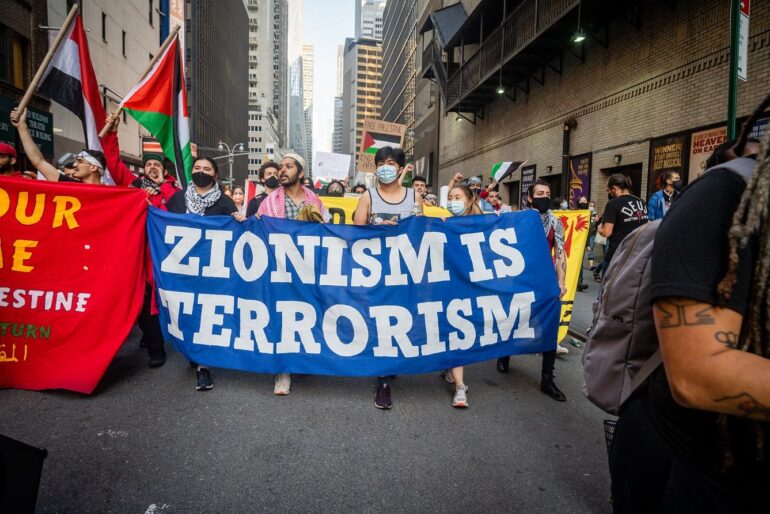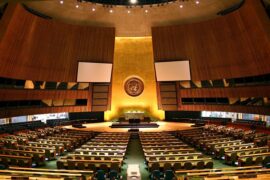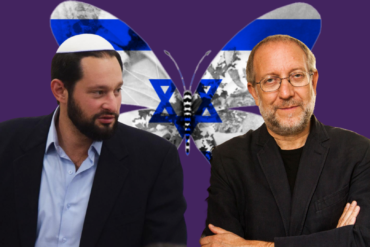Anti-Zionist sentiment has been building for decades, though the ideology – the dismantling of the State of Israel – has remained the same. Self-identified anti-Zionists today come in all colors, ages, genders, and ethnicities. In Western discourse, which readers may be most familiar with, the majority of them seem to be teens and young adults who describe themselves as progressive and wanting to dismantle colonial systems of oppression. They are active in various social justice movements both in person and on social media.
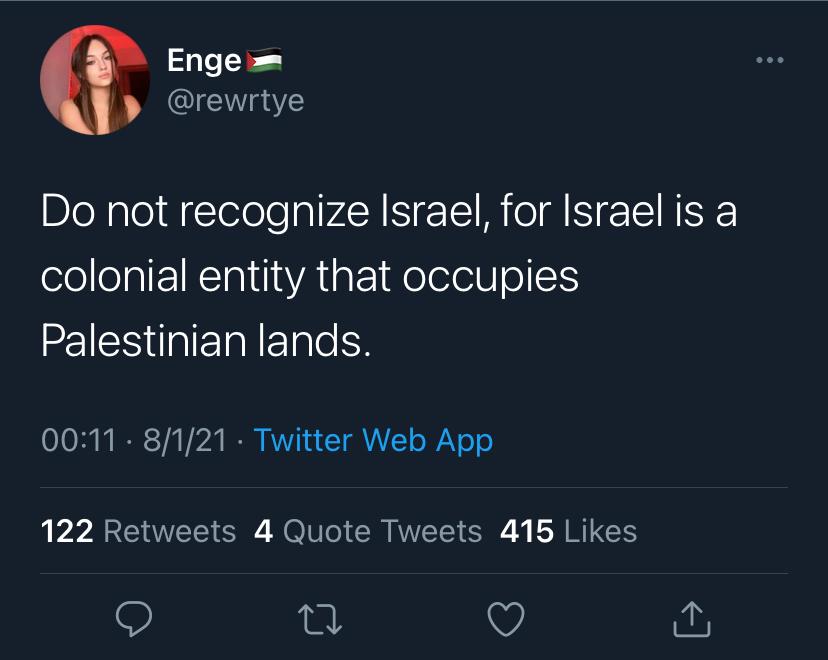
Anti-Zionists make their voices heard at protests, on college campuses, and on social media. They call for a free Palestine from the river to the sea and launch multiple allegations about the Jewish state as part of their defense for why it shouldn’t exist: it’s a settler-colony, Israel was founded illegally, it’s an extension of European-colonialism, occupying Palestinian land, engaging in apartheid. But the common core claim being expressed through all of these accusations is that the Jews are not indigenous to Israel so why the heck are they entitled to live there?
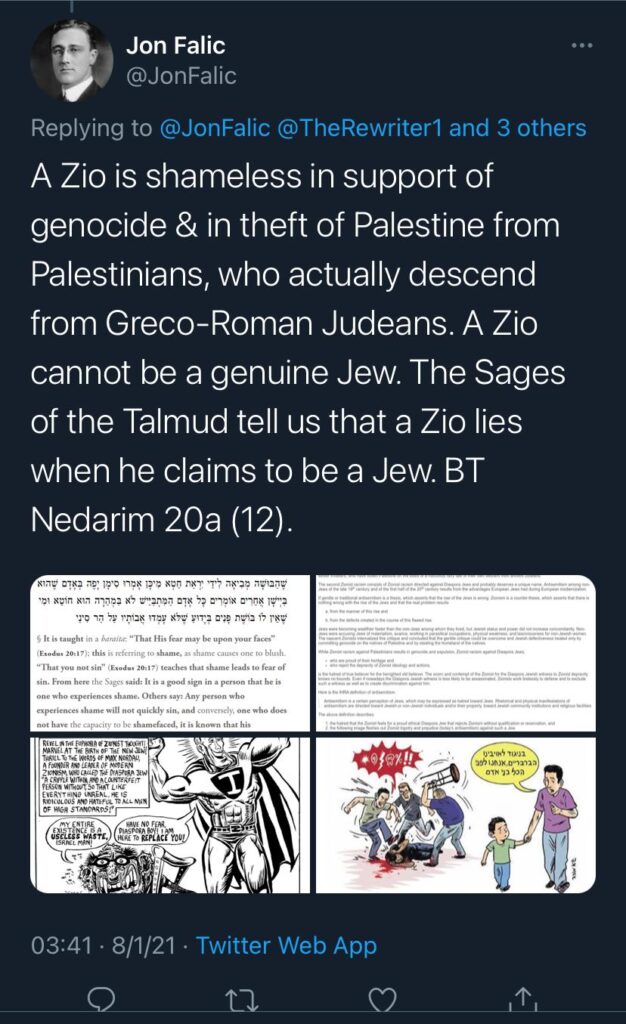
Because of this core accusation, which they wholeheartedly believe to be true, anti-Zionists repeatedly declare that Zionism is not inherent to Jewish identity. They see the two as unrelated and argue (often in the name of “opposing anti-Semitism”) that people should be careful not to equate one with the other. You may be asking yourself: Why should I care what a bunch of young naive “activists” have to say about Jews and Zionism?
On the one hand, it’s problematic that they try to cleave one entity from the other when they are inextricably linked. Zionism might mean something very specific and relevant to the modern age, but there has always been a longing and desire amongst the Jewish people to return home.
Even if we want to go down the rabbit hole of ignoring all the historical and archaeological evidence that proves the Jewish people to have originated in Eretz Yisrael, one need only look at our daily tefillot to see the truth of our connection. You will find repeated mentions of Zion, Jerusalem, and a yearning to come back to our land. At the end of Yom Kippur as well as the Pesaḥ seder, we declare “next year in Jerusalem!” The Tehillim are full of King David’s references to Jerusalem, Judea, and HaShem in Zion. But Jews have no connection to the land of Israel?
The larger and more serious problem is that despite their repeated claims about no connection between Jewish identity and Zionism, their actions speak much louder than their words. Anti-Zionists are frequently heard saying “I don’t have a problem with Jews, just with Zionists.” But is that really true?
In November of 2019, the Graduate Student Union at the University of Toronto denied Hillel’s request to provide kosher food for Jewish students on campus since doing so would be “pro-Israel” (that same student union had voted in 2012 to support BDS).
In California, Pomona College’s student government passed a BDS resolution on April 23, 2021 that would have denied funding to Jewish and pro-Israel organizations on campus. Jewish students & groups at Pomona expressed their disappointment and anger at the resolution. Although the Associated Students of Pomona College removed the portion about Jewish groups, we shouldn’t ignore the trend.
On July 26, 2021, Rutgers University’s Students for Justice in Palestine (SJP) co-signed a statement that all but called for Hillel to be defunded because of its association with Israel. Hillel is a world-wide Jewish student organization whose goal is to encourage students to create vibrant Jewish lives. A connection with Israel is a part of their programming, but they also organize Shabbat dinners, host Jewish holiday celebrations, and offer educational opportunities for students.
The SJP, along with Rutgers Mutual Aid, also called Israel an apartheid state and alleged that Zionism and white supremacy are the two biggest threats to the Jewish community. They asked the university to denounce “all attempts to falsely conflate anti-Zionism with anti-Semitism”.
For context, SJP’s statement was written in response to a letter penned by Representative Josh Gottheimer (D-NJ) to the university’s president, imploring him to denounce the “hate-filled misinformation campaign” against Israel.
Beyond their efforts to restrict Jewish life on campus, whether they openly call it that or not, there can be even more serious ramification to anti-Zionist hypocrisy.
During the recent conflict between Hamas and Israel in May of 2021, Jews in countries such as the United States, Canada, and England were met with extreme violence. Jews were beaten in the streets, “Free Palestine” protesters in London were calling to kill the Jews and rape their daughters, and various Jewish offices were vandalized. No one stopped to ask them first, “Excuse me, are you a Zionist? Do you support Israel?” Instead, Jewish people were indiscriminately targeted. But it’s just Zionism they have a problem with, not Jews, right?
As this article was being written, calls for a global intifada began circling on social media, culminating with a march in Brooklyn on July 31. Intifada in Arabic means “to shake off.” The second intifada involved the killing and maiming of thousands of people throughout Israel in waves of suicide bombings, drive-by shootings and other violent attacks (Israel’s military responses killed even more Palestinians).

It should be noted that “globalize the intifada” isn’t actually a Palestinian slogan but rather one popular with solidarity activists in the West. But what exactly do they hope to achieve by globalizing the intifada?
Let’s now rewind to the statement of “I don’t have a problem with Jews, just with Zionists.” Or even to the claim that Zionism has nothing to do with Jewish identity.
If anti-Zionists believe this statement, then why are they targeting Jewish groups on college campuses such as Hillel?
Why are they not allowing Kosher food on college campuses for Jewish students?
Why are they taking part in, supporting, and calling for violence against Jews in the Diaspora?
Why are they calling for the globalization of a movement that resulted in the deaths of thousands of people, both Israeli and Palestinian?
You say you don’t have a problem with Jews, just with Zionists, but you attack Jews without even knowing their feelings on Israel. You condone assaults against another human being because they don’t agree with you or their truth does not fit your narrative. You also call for the annihilation of over 6.5 million Jewish-Israelis simply for having the audacity to exist on the same land as Palestinians. You make it very clear that your problem is not just with Zionists, but with Jews as a whole.
Furthermore, as we see with the Rutgers’ SJP statement, they don’t want anti-Zionism to be conflated with anti-Semitism. But how can we call it anything else? When Jews, and Jewish organizations and businesses, are targeted around the world whether or not they have expressed support for Israel, it is anti-Semitism. And that’s without even addressing the notion that anti-Zionism may itself be anti-Semitic.
As a collective, Jews need to stop being okay with the denial of our history. It’s simply not enough to tell ourselves that we know the truth or we believe it will make itself known in time. The fact that our own connection to our land is so obvious and deed doesn’t mean we should see no real consequence in others denying Zionism’s link to Jewish identity. The knowledge that campus BDS campaigns will fail to hurt Israel doesn’t mean we should turn a blind eye to them.
Because none of this stuff is okay. Period.
We have to be done with just sweeping these things under the rug as if they’re just some fad that’ll go away or eventually die out. Donating to the ADL or showing support for our people within our communities is not the same as major online pushbacks and live demonstrations. Social media has become stronger in the past few years.
The anti-Zionist crowd is loud. They are persistent. And the underlying meaning of their message is clear. We are standing on a precipice that may have irreversible consequences for our people.
We need to be the ones who are loud. We are the ones who should be persistent in spreading the truth about who we are, where we come from, and what we want. Because it’s not just Israelis and Israeli companies that are hurt by the anti-Zionists. We have been seeing with our own eyes that no matter where we are in the world, it is the Jewish people who are suffering from this misinformation campaign.
It’s time to rise up and show them who we really are.

